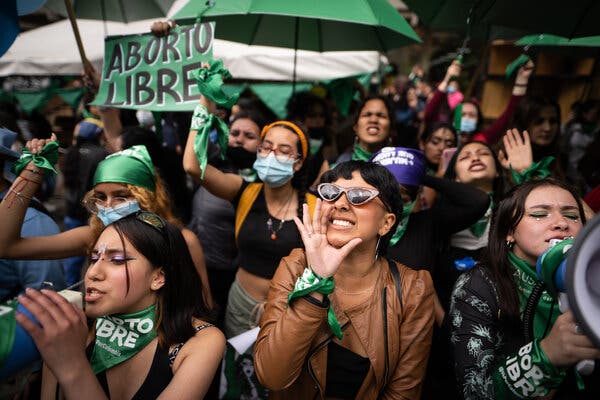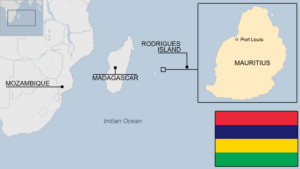

Having an abortion is no longer a crime under Colombian law, the country’s top court on constitutional matters ruled on Monday, in a decision that paves the way for the procedure to become widely available across this historically conservative, Catholic country.
The ruling by Colombia’s Constitutional Court follows years of organizing by women across Latin America for greater protections and more rights, including access to abortion, and significant shifts in the legal landscape of some of the region’s most populous countries. Mexico’s Supreme Court decriminalized abortion in a similar decision in September and Argentina’s Congress legalized the procedure in late 2020.
The ruling means that three of the four most populous countries in Latin America have now opened the door to more widespread access to abortion.
It also comes as the United States has been moving in the opposite direction, with abortion restrictions multiplying across the country, and the U.S. Supreme Court considering a case that could overrule Roe v. Wade, the 1973 ruling that established a constitutional right to abortion
“This puts Colombia on the vanguard in Latin America,” said Mariana Ardila, a Colombian lawyer with Women’s Link Worldwide and a part of the coalition that brought one of two cases challenging the criminalization of abortion.
“This is historic,” she continued, “and it means that many women, girls and adolescents who were risking their lives in unsafe places, who were being criminalized, will now be protected.”
The Colombian court’s decision decriminalizes abortions in the first 24 weeks of pregnancy, and means that any woman should be able to seek the procedure from a health professional without fear of criminal prosecution. It also sets the stage for the Colombian government to regulate the process further.
Until now, abortions had been legal only in limited circumstances, laid out by a 2006 Constitutional Court decision: when a woman’s health was at risk, when a fetus had serious health problems or when a pregnancy resulted from rape. Anyone else who had an abortion — or who helped a woman obtain one — could be sentenced to 16 to 54 months in prison.
Colombia’s nine constitutional court magistrates voted five to four in favor of decriminalization.
In an interview following the vote, Judge Alberto Rojas Ríos, who co-wrote the ruling in favor of decriminalization, called the decision “a symbol of the eternal fight for women’s freedom” and a step toward “self-determination” for Colombian women.
Abortion rights activists often said that this legal landscape created a two-tier system: Wealthier women in cities could acquire an abortion because they knew how to use one of the exceptions laid out in the law, while poorer women with less education had limited knowledge of how to do so.
Prosecutors in Colombia open about 400 cases each year against women who have abortions or people who help them, according to the attorney general’s office. At least 346 people have been convicted in such cases since 2006.
Nearly all of these abortion-related investigations have been in rural areas, involving girls as young as 11, according to researchers with Causa Justa, a coalition of abortion rights groups that analyzed government data and filed one of the two abortion cases considered by the court.
Illegal abortions can be unsafe and cause about 70 deaths a year in Colombia, according to the country’s health ministry.
A recent survey by the nonpartisan firm Ipsos found that while 82 percent of Colombian respondents supported abortion in some circumstances, just 26 percent supported it in all cases — and the court’s decision is likely to cause friction as abortion rights activists, policymakers, health care providers and others determine how it should be carried out.
The decision cannot be altered by other legal bodies.
Colombia’s Constitutional Court is considered by many legal experts to be more liberal than the country at large, and many recent liberal shifts, including the legalization of same-sex marriage in 2016, resulted from the court’s decisions.
The court is also considered a legal trendsetter in the region, said Francisco Bernate, a law professor at the University of Rosario in Bogotá, and the decision is likely to attract the attention of judges across Latin America.
Activists in the United States are also following the changes in the region.
“These struggles are connected,” said Serra Sippel, the chief global advocacy officer at Fos Feminista, an alliance of reproductive rights groups that works around the world, including in the United States. “We in the U.S. can really learn a lot.”
Sofía Villamil contributed reporting.



